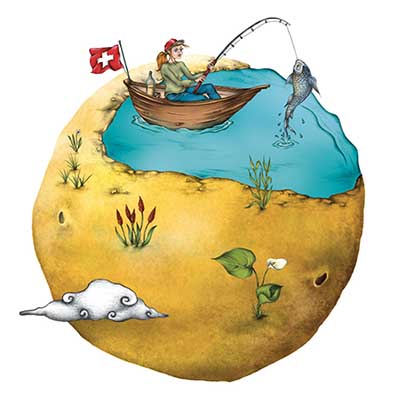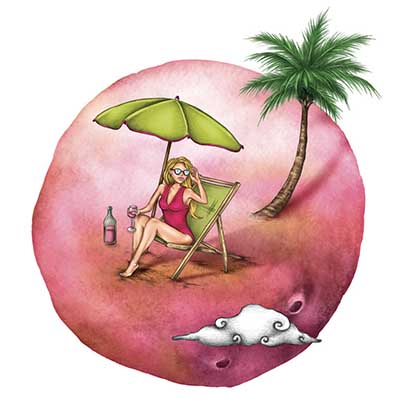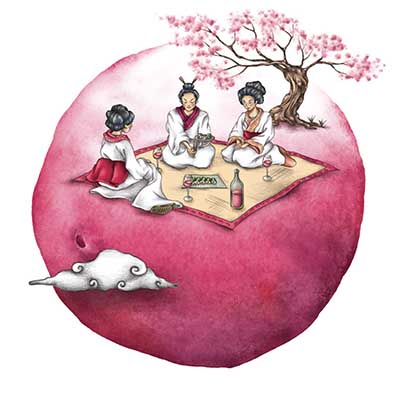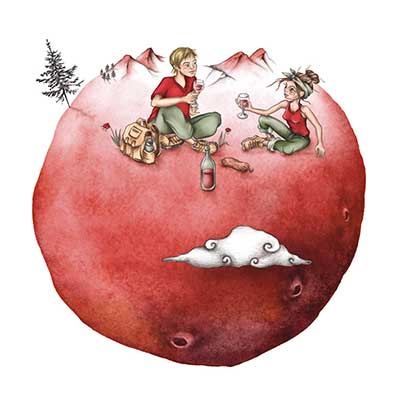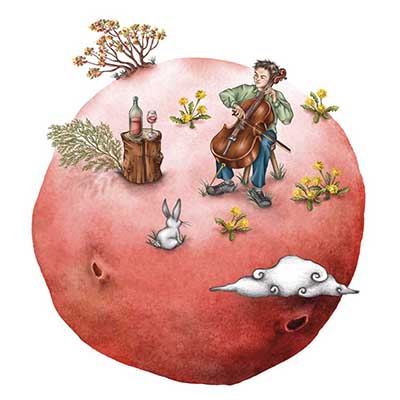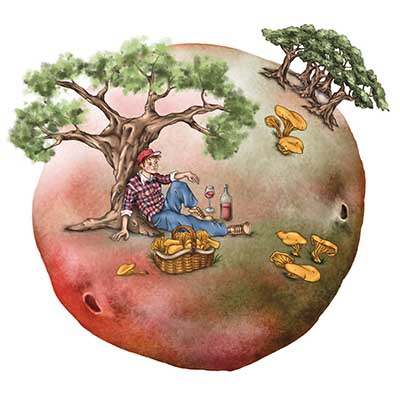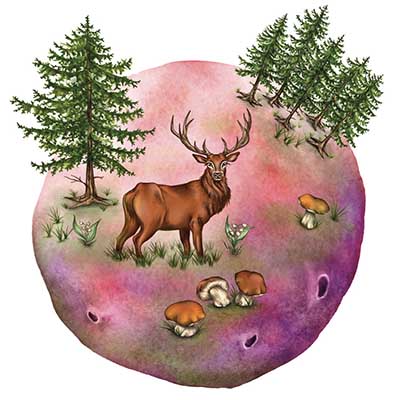Domaine des Petites Planètes
It took me more than twenty years of traveling through vineyards around the world, immersing myself in the aromas of cellars, the limestone, granite, and schist terroirs, and the character of indigenous grape varieties, to dream of one day founding my own estate. In 2012, the Valais took my breath away, like an unexpected, luminous encounter that leaves a lasting mark. Its sunlit terraces, dry-stone walls, and emblematic grape varieties such as Petite Arvine, Humagne Rouge, and Cornalin resonated like a call. Six years later, in 2018, fate brought me to Fully, where I had the privilege of working alongside Marie-Thérèse Chappaz, an iconic figure of Valais wines and a pioneer of biodynamic viticulture in Switzerland. Three and a half years by her side planted in me the deep certainty that it was here, in these mountains, that my journey would find its true meaning.
In 2022, the land answered my dreams. A first parcel welcomed me, and soon the village winemakers extended their trust, opening the doors to a few more plots on the terroir of Pré des Pierres in Chamoson. A small range of wines was born, nurtured by stories, noble and rustic grape varieties, and a desire to elevate the alpine expression.
I had come from far away. From Domaine Tripoz in the Mâconnais, where I learned to listen to nature and work with living soils. From years with the Bret brothers in South Burgundy, where no selected yeast ever interfered with the wine's pure voice, and sulfur was reduced to a mere whisper to preserve the aromatic integrity and minerality of their cuvées. And from the teachings of Pierre Masson, a man who championed the wisdom of a biodynamics rooted in agronomy, respect for life, and the delicate balance of vineyard ecosystems. From these experiences was born a profound conviction: no chemical product would ever touch my vines or my wines.
In winter, I cover the vines with green manures— rye, clover, phacelia — to nourish the soils and stimulate microbial activity. Each organic treatment is accompanied by herbal teas made from horsetail, nettle, chamomile, or yarrow, as well as fermented extracts from comfrey, fern, or alfalfa, to strengthen the natural defenses of the vines against fungal pressures like mildew or powdery mildew. Biodynamic preparations, including horn manure (500P) and horn silica (501), mark each season and harmonize the plant’s cycles. Since 2022, compost tea has become an essential practice: rich in microorganisms, it regenerates soil life and supports the expression of alpine terroirs.
In the cellar, nature continues its work. Only indigenous yeasts guide the fermentation of my wines, allowing each grape variety—Humagne Rouge, Pinot Noir, Syrah, or Petite Arvine — to reveal its typicity and authenticity. Macerations are short to preserve the finesse of primary aromas and the brilliance of the fruit. I use only small doses of volcanic sulfur, added at the end of fermentation and just before bottling, to ensure the stability of the wines without compromising their vitality. No enological inputs, no enzymes, no fining — nothing that could alter the integrity of the wine.
Each bottle tells a story: that of an alpine terroir, of natural and demanding viticulture, and of a passionate craftsman. These wines — vibrant, profound, and sincere — exalt the flavors of the mountains, forest fruits, subtle spices, and sometimes a saline or smoky touch inherited from the Valais soils. They carry the imprint of time and the elements, and I am but a humble steward, hoping they will captivate you and resonate within you, like an echo of these landscapes that have given me so much.
Guillaume Bodin

